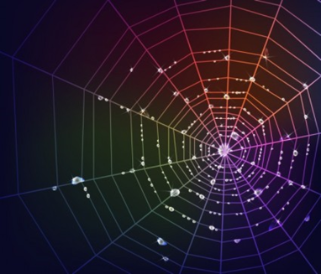The Sandpit Experience
Published: 26 May 2015
Marian Scott attended an EPSRC Sandpit event.
I attended my first ever EPSRC sandpit in January and thought it might be helpful to reflect on the experience. The theme of the sandpit was the Water Energy Food nexus, and the EPSRC themes were: Energy, Engineering, LWEC, Mathematical sciences, and as a result, I now lead a new £1.4million project, WEFWEBs in partnership with 7 other organisations, and next week, I will attend a 2 day workshop in Washington DC to develop research themes with US counterparts.
The call to be part of the sandpit appeared on the EPSRC website and I applied (filling in a simple form) expecting not to be selected. The form did not ask about my personal discipline specific knowledge base but focussed much more on ‘softer’ skills, such as how you would work in a team, your experience of multi-disciplinary research and such like. The instructions also suggested that selection to attend the sandpit would be made with the help of psychologists. So imagine my surprise to be selected.
First, what is a sandpit?
The following paragraph is taken from the call for the sandpit.
“A Sandpit for Ideas, the concept of the IDEAS Factory is to organise interactive workshops (sandpits) on particular topics, involving 25-30 participants. How will the Sandpit Work? The sandpit is an intensive, interactive and free-thinking environment, where a diverse group of participants from a range of disciplines and backgrounds get together for five days, away from their everyday worlds, to immerse themselves in collaborative thinking processes in order to construct innovative approaches.”
The carrot for attending a sandpit is the opportunity to be involved in a project, devised at the sandpit. “Following the sandpit, investigators involved in those projects recommended for funding will be tasked with writing a full proposal covering their intended activities as identified at the sandpit.” More generally attendance is an opportunity to develop new collaborations, especially as the vast majority of attendees are not known to you (at least in my case).
What did we do at the sandpit?
This was really a pretty intensive 5 days, large amounts of coloured pens and paper were used, all led by a team of professional facilitators and a series of mentors appointed by EPSRC. The first few days were spent working in teams on a series of activities, some of which were quite removed from the sandpit topic (this was very clearly intentional), we had an afternoon photography competition on Wednesday afternoon, and then from Thursday onwards, the project pitches were being crafted. We gave several pitches (usually without visual aids) and received feedback (strengths and weaknesses). We crafted several short documents, and then the final deadline came, where we had to submit a final (relatively short) document, which was followed by an interview, the next (Friday and final) morning, in front of a large panel. The nervous wait then began since that same afternoon, the proposals that were selected for going forward to a full submission were announced. WEFWEbs was selected, and then the hard work of writing and costing a full JeS submission, was required in a relatively short time period.
 What is WEFWEbs?
What is WEFWEbs?
Securing a sustainable supply of water, energy and food for all is a key global issue. An increasing demand for land/food/energy/water, urbanisation and the need to limit exploitation of these resources in a move towards a more sustainable economy will increase the strain on local, national and international resources. Our water, energy, food and waste systems are interconnected, and impacted by climate and demographic change. The nexus seeks to define the interdependencies between the different systems and improve our understanding and hence ability to effectively predict and manage them.
This proposal addresses the challenges of understanding and hence identifying the dynamic, interlinked inter-dependencies across the nexus networks which are physical (water, waste, energy and food), social and political (individual, regulatory and policy), ecological and digital at multiple, nested scales (local, regional and national) and temporally.
The Water-Energy-Food (WEFWEB) nexus project will examine social, economic, political, institutional and environmental data from a local to global scale to provide “improved understanding of the consequences of the choices we make as citizens or as a society”. Our partners are researchers from the Universities of Exeter, Newcastle and Oxford, University College London, Imperial College London, the School of Oriental & African Studies, STFC and Rothamsted Research.
Finally, my first experience was very positive and encourage you to take the opportunities that come along in the future.
First published: 26 May 2015
<< May 15

